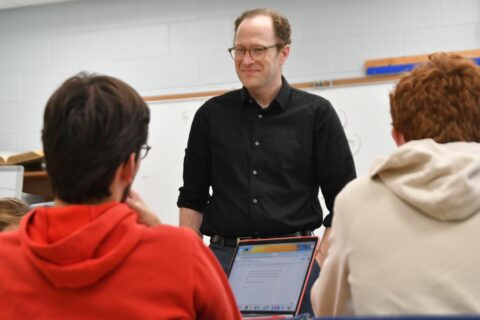Author: Tia Henteleff, Lower School Associate Head of Research
Early childhood educators have the privilege of working with children during a remarkable time in a child’s life, one that is often characterized with an abundance of curiosity, creativity, and a considerable amount of brain development. It is also the beginning of a child’s career in school. In early childhood, young students are beginning to develop the associations of what it means to be a part of a learning community, influencing their learning trajectories as well as how they see themselves as learners. This is a time when educators want to be informed by the most advanced and robust research coming out of Mind, Brain, and Education science.
As many early childhood educators can attest, finding professional development opportunities that address this unique age and stage in brain development, psychology, neuroscience, curriculum, and pedagogy is hard to come by, to say the least. This is why the Center for Transformative Teaching and Learning has developed the Science of Teaching and School Leadership Academy just for us. For four days, we will hear from experts in the field and will be given tools in Mind, Brain, and Education to both inform our practice as well as our capacity to address the unique challenges and opportunities we face in early childhood education.
Science of learning researchers agree that having a mental model of the brain helps teachers teach and learners learn. The Academy gives the participants the foundational understanding of neuroanatomy to help us dive deeper into topics we all care about such as: how to use the power of play for learning and well-being, memory, motivation, feedback, assessment, literacy, numeracy, and the connection between emotion and cognition.
I began my MBE journey back in 2012 when I applied for a grant to research brain development and cognition in children ages 3-6. Since that time, I have grown my understanding and skills of the science of teaching and learning in incalculable and invaluable ways and have relished the connections I have made with fellow educators during the Academy. My passion and enthusiasm for this topic is born from the multitude of ways I have seen it benefit the students I teach and the colleagues I have had the pleasure to collaborate with.
What makes this professional development unique is how it is designed to empower teachers through MBE research while also respecting the knowledge and experience you bring to the conversation. You will leave the Academy with a plan of how to use your newfound knowledge and strategies to address a particular passion, opportunity, or struggle of yours. You will also leave with tools and resources to help you further on your journey as an MBE-informed and MBE-inspired teacher!




